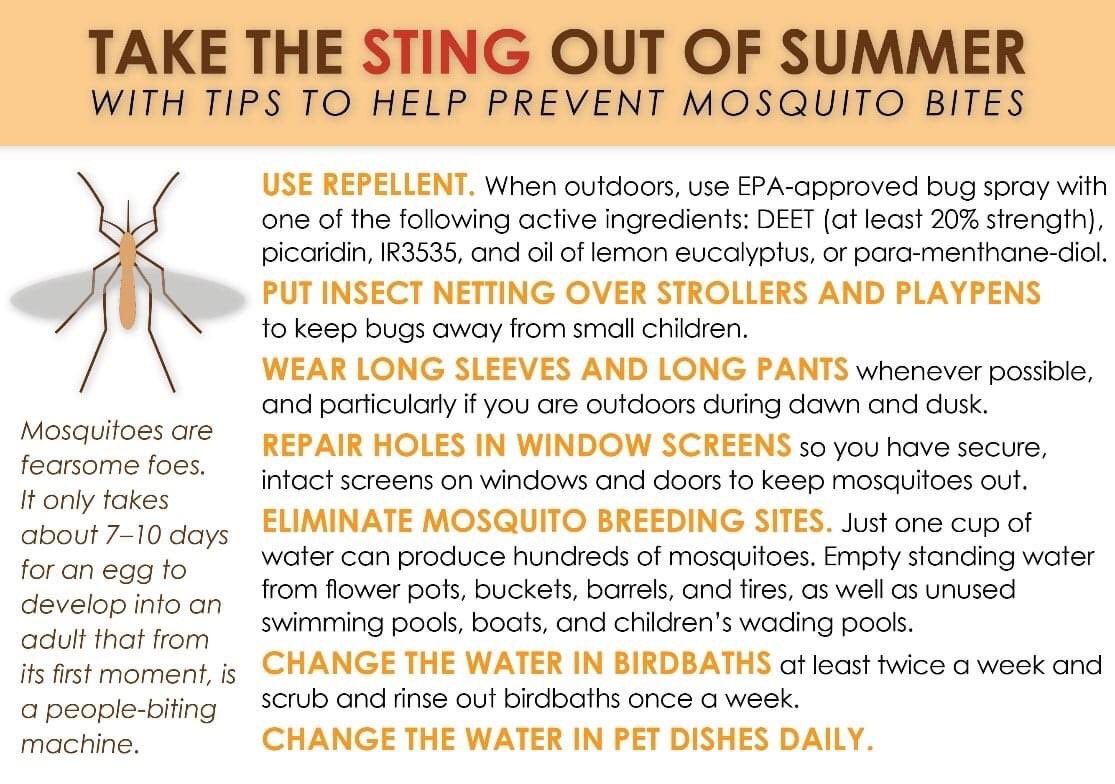Rhode
Island’s First Positive Finding in a Mammal in 2020
 The
Rhode Island Department of Environmental Management (DEM) and Rhode Island
Department of Health (RIDOH) are confirming this year’s first positive
detection of Eastern Equine Encephalitis (EEE) in a mammal.
The
Rhode Island Department of Environmental Management (DEM) and Rhode Island
Department of Health (RIDOH) are confirming this year’s first positive
detection of Eastern Equine Encephalitis (EEE) in a mammal. DEM’s Division of Law Enforcement (DLE) responded to a report of a white-tailed deer – disoriented and walking in circles – in North Kingstown on August 21.
DLE euthanized the animal and its tissues were subsequently tested for EEE by RIDOH’s Rhode Island State Health Laboratories. The state lab today confirmed that the deer tested positive for EEE.
The animal also will be tested for chronic wasting disease. This finding of EEE in a mammal indicates that there is now an elevated risk of disease transmission from mosquito bites to humans in Rhode Island.
Yesterday,
DEM and RIDOH announced that 147 mosquito samples from 44 traps set August 17
tested negative for both EEE and West Nile Virus (WNV). Along with today’s confirmed
mammalian case, there has been one EEE finding in a mosquito sample from
Westerly, announced August 21, and no findings of WNV in mosquito samples.
To
date, Massachusetts has confirmed 3 human cases of EEE, 65 findings of EEE, and
70 findings of WNV. There have been no human cases of EEE or WNV in Connecticut
in 2020, but the state has confirmed two EEE findings and 82 WNV findings.
Personal
protection is the first line of defense against mosquitoes that may carry WNV,
EEE, or other diseases – and the most effective way to avoid infection. With
EEE established in Rhode Island and WNV nearby, DEM and RIDOH remind the public
to eliminate mosquito breeding grounds around their homes and yards and prevent
being bitten, whenever possible.
While outdoor spaces reduce the likelihood of exposure to COVID-19, they pose a greater risk of exposure to mosquito-borne diseases. For this reason, DEM and RIDOH emphasize that if Rhode Islanders are going to be outside during the peak “biting hours” – at dawn and dusk – to wear your face masks, long sleeves and pants, and use insect repellent. The following precautions are advised.
While outdoor spaces reduce the likelihood of exposure to COVID-19, they pose a greater risk of exposure to mosquito-borne diseases. For this reason, DEM and RIDOH emphasize that if Rhode Islanders are going to be outside during the peak “biting hours” – at dawn and dusk – to wear your face masks, long sleeves and pants, and use insect repellent. The following precautions are advised.
Best
practices for horse owners
Horses
are particularly susceptible to WNV and EEE. Horse owners are advised to
vaccinate their animals early in the season and practice the following:
- Remove or cover areas where standing water can collect.
- Avoid putting animals outside at dawn, dusk, or during the night when mosquitoes are most active.
- Insect-proof facilities where possible and use approved repellents frequently.
- Monitor animals for symptoms of fever and/or neurological signs (such as stumbling, moodiness, loss of appetite) and report all suspicious cases to a veterinarian immediately. If you are unsure if your horse is properly vaccinated, you should consult with your veterinarian.
Visit http://www.health.ri.gov/mosquito for
additional mosquito prevention tips, videos, and local data.
Mosquitoes
are trapped weekly by DEM and tested at the RIDOH State Health Laboratories.
DEM issues advisories on test results from July through September, with additional
reports as necessary. Typically, positive test results trigger additional
trapping to assess risk.
For
more information about DEM divisions and programs, visit www.dem.ri.gov. Follow us on Facebook at Rhode Island Department of Environmental Management or
on Twitter (@RhodeIslandDEM) for timely updates.